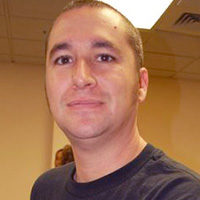A statement released by the Republican Party of Florida on January 6, claims that the GOP is “closing the gap” on Democrats with new Republican voter registrations.
According to the press release, “In January 2011 there were 580,666 more Democrats than Republicans in Florida. As of December, that number has been reduced to 502,861. In other words, over the last 12 months – a non-election year – the gap closed a total of 77,805 or about 6,500 each month. 44,954 of the total voter shift had occurred in the last 3 months alone, reflecting an increase in momentum.”
To analyze the facts properly, however, one needs to look beyond just the numbers.
Florida’s House Bill 1355, which was signed into law by Gov. Rick Scott in May of last year, severely restricts third-party voter registration. The bill specifically targets nonpartisan voter registration organizations by requiring that volunteers return all signed voter registration forms within two days or face large fines and criminal charges.
Issue-oriented progressive activists and the people they serve are particularly hard hit by this rule. For many of Florida’s minority and low-income communities and youth, these activists and groups have long been the vehicle that has brought them onto the voter rolls. Community activists registering people as a public service end up adding to the rolls of the Democratic Party not because they, the registrars, are partisan but because the people they serve tend to choose registering as Democrats rather than as Republicans.
Ashley Lopez of the Florida Independent reports that third-party voter registration in Florida has grinded to a halt since the passing of the bill. She said, for example, that the League of Women Voters, one of the country’s biggest third-party registrars, pulled out of Florida as a result of the new law.
Also as a result of HB 1355, two Florida teachers are now facing upwards of $1,000 in fines for registering their students to vote. The Daytona Beach News Journal reported that New Smyrna Beach high school teacher Jill Cicciarelli is under investigation by the state for pre-registering high school students to vote without herself registering beforehand as a registrar with the state.
Another educator, Dawn Quarles, an advanced placement government teacher in Santa Rosa County, is facing similar charges. For many first time voters, high school is their entry into civic politics. But with teachers facing “voter fraud” charges, high school-aged youth will most likely not be registered to vote in 2012 in Florida.
Fighting back against the voter suppression law, third-party registration groups have filed a joint lawsuit against HB1355. The groups, including Project Vote, the NAACP, the AFL-CIO and the ACLU, argue that the new law makes it harder for Floridians to register to vote, to actually vote and to have their votes counted. Among other things, the groups note, HB 1355 reduces the number of days when early voting can occur, and imposes severe restrictions on voter registration drives.
Under the Voting Rights Act five Florida counties are required to seek “preclearance” of any voting changes from the United States Department of justice or the federal court. That court, in October, granted a motion filed by the suing voter registration groups meaning the groups will be allowed to participate in sessions where the federal court considers whether the new law will diminish voting rights.
On the legislative side, State Rep. Mark Pafford, Democrat of West Palm Beach, introduced a bill last week that would reverse many of the suppressive measures in HB 1355. Pafford’s bill would also require that third party registration groups deliver voter registration forms to the division or the supervisor of elections within 10 days rather than within the 48 hours stipulated in the current law.
Progressive forces now mobilizing against the GOP’s voter suppression bill in Tallahassee and across the state hope that by this spring, one way or the other, the repressive law will go down to defeat.












Comments